- Martin Luther King Jr.: A Celebration of Courage and Change
- Martin Luther King Jr.’s Leadership in the Civil Rights Movement
- Trailblazers of Freedom and Equality
- The Collective Impact on American History
- Continuing the Legacy in Modern Times
- Conclusion: Carrying Forward the Legacy of Courage and Change
Martin Luther King Jr.: A Celebration of Courage and Change
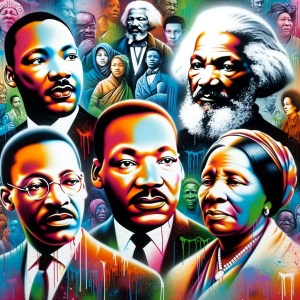
Introduction to Martin Luther King Jr.: A Beacon of Hope and Change
Dr. Martin Luther King Jr. stands as a towering figure in the history of civil rights, embodying the ideals of equality, justice, and nonviolent resistance. His leadership and unwavering commitment to these principles marked a pivotal chapter in America’s journey toward racial equality. In celebrating Martin Luther King Jr. Day, we not only honor his legacy but also reflect on the countless stories of resilience and courage that have shaped the civil rights movement.
In this article, you will learn:
- The profound impact of Martin Luther King Jr.’s leadership in the civil rights movement, highlighting his philosophy of nonviolent protest and key moments in his journey.
- The inspirational stories of Ona Judge, Frederick Douglass, Harriet Tubman, Madam C.J. Walker, and the Tuskegee Airmen, and their significant contributions to the fight for freedom and equality.
- The collective legacy of these historical figures and how they continue to inspire our ongoing struggle for justice and equality in modern times.
As we delve into these narratives, we not only commemorate the past but also draw inspiration and strength for the ongoing journey towards a more just and equitable society.
“I have decided to stick with love. Hate is too great a burden to bear.” – From “Where Do We Go From Here: Chaos or Community?”
-Dr. Martin Luther King Jr. 1967.
Martin Luther King Jr.’s Leadership in the Civil Rights Movement
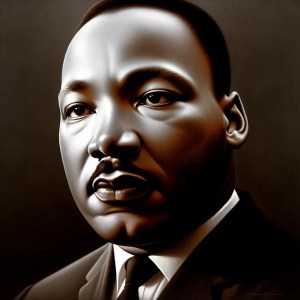
The Emergence of a Civil Rights Leader
In the mid-20th century, America’s struggle with racial discrimination was reaching a critical juncture, and at the forefront of this battle for equality stood Dr. Martin Luther King Jr. Born in Atlanta, Georgia, in 1929, King’s early experiences with segregation and racial injustice laid the foundation for his lifelong dedication to the civil rights cause.
Montgomery Bus Boycott: The Spark of a Movement
King’s rise to national prominence began with the Montgomery Bus Boycott in 1955. Sparked by Rosa Parks’ refusal to give up her seat to a white passenger, the boycott lasted over a year and became a symbol of nonviolent resistance against racial segregation. King’s leadership during this period demonstrated his remarkable ability to inspire and mobilize people in the pursuit of justice.
Birmingham and Beyond: Expanding the Struggle
In 1963, King’s leadership in the Birmingham Campaign brought national attention to the harsh realities of segregation in the South. His commitment to nonviolent protest was put to the test in the face of violent opposition, but it was his resilience and strategic acumen that turned these challenges into opportunities for change. The campaign’s success laid the groundwork for the Civil Rights Act of 1964.
“I Have a Dream”: A Vision for the Future
Perhaps King’s most enduring legacy is his “I Have a Dream” speech, delivered during the 1963 March on Washington for Jobs and Freedom. His eloquent vision of a future where individuals are judged by the content of their character rather than the color of their skin continues to resonate globally. This speech remains a powerful reminder of the ideals that King stood for.
A Legacy of Peace and Justice
King’s efforts extended beyond the fight for racial equality. As the youngest man to receive the Nobel Peace Prize, he also championed causes like poverty alleviation and global peace. His opposition to the Vietnam War highlighted his belief in the interconnectedness of justice issues worldwide.
Dr. King eloquently summarized his global vision for justice in his famous words, ‘Injustice anywhere is a threat to justice everywhere.’ This statement transcends time, reminding us that the fight for equality is universal and ongoing.
A Tragic End, An Enduring Legacy
The assassination of Martin Luther King Jr. in 1968 was a devastating blow to the civil rights movement. Yet, his legacy endures, inspiring generations to continue the fight for racial equality and justice. Martin Luther King Jr. Day serves not only as a reminder of his contributions but as a call to action in the ongoing struggle for civil rights.
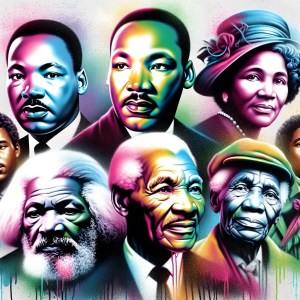
Trailblazers of Freedom and Equality
Have you ever wondered what true courage looks like? Or how individual acts of bravery can ignite a movement that changes the course of history? In this section, we dive into the lives of extraordinary individuals whose stories are not just tales of personal triumph but beacons of hope in the relentless pursuit of freedom and equality. From Ona Judge’s daring escape to Frederick Douglass’s powerful advocacy, these narratives are not just chapters in history books; they are sources of inspiration that challenge us to reflect on our roles in the ongoing struggle for justice. As we explore these remarkable journeys, ask yourself, how can their resilience and determination influence our actions today?
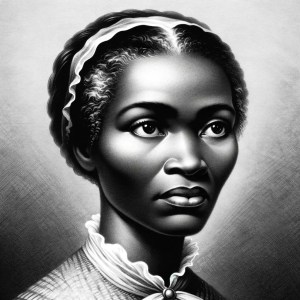
Ona Judge: A Leap for Freedom
Ona Judge’s story begins in the shadows of slavery, born into bondage on George Washington’s Mount Vernon estate. Her life took a remarkable turn when, at the age of 22, she executed a daring escape from the President’s house in Philadelphia. Judge’s successful flight to New Hampshire was not just a personal victory; it symbolized the unquenchable desire for freedom that defined the lives of countless enslaved individuals.
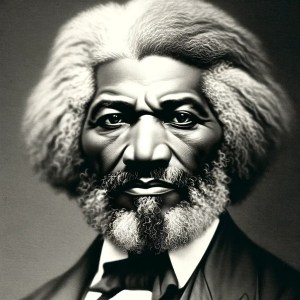
Frederick Douglass: The Voice of Abolition
Born into slavery in Maryland, Frederick Douglass epitomized the power of education and self-determination. His escape from slavery in 1838 was just the beginning of a remarkable journey. As an orator and writer, Douglass became a formidable force in the abolitionist movement, using his eloquent voice to expose the horrors of slavery and advocate for human rights. His autobiographies, particularly “Narrative of the Life of Frederick Douglass, an American Slave,” remain pivotal in understanding the African American experience.
“What, to the American slave, is your 4th of July? I answer: a day that reveals to him, more than all other days in the year, the gross injustice and cruelty to which he is the constant victim.”
–Excerpt from Frederick Douglass’ Fourth of July Speech
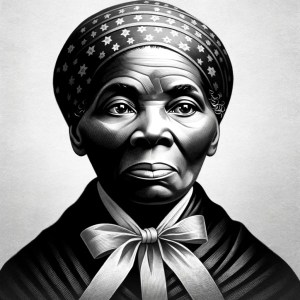
Harriet Tubman: The Conductor of Freedom
Harriet Tubman’s escape from slavery in 1849 marked the start of an extraordinary chapter in her life. As a “conductor” on the Underground Railroad, she risked her life to lead over 300 enslaved individuals to freedom, earning her the title “Moses of her people.” Tubman’s bravery extended to her service as a scout, spy, and nurse during the Civil War, further cementing her legacy as a symbol of courage and resilience.
Harriet Tubman’s determination and bravery are captured in her own resolve: “I had reasoned this out in my mind; there was one of two things I had a right to, liberty or death; if I could not have one, I would have the other.” Her words embody the spirit of resilience and the unyielding pursuit of freedom.
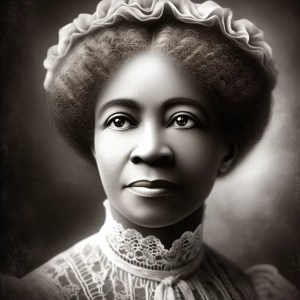
Madam C.J. Walker: Pioneering Entrepreneur and Philanthropist
Born Sarah Breedlove to recently freed slaves, Madam C.J. Walker shattered barriers to become America’s first female self-made millionaire. Her successful line of hair care products for black women was a testament to her entrepreneurial genius. Beyond her business success, Walker was a generous philanthropist, supporting African American causes and institutions, including the NAACP and Tuskegee Institute.
“I am a woman who came from the cotton fields of the South. From there I was promoted to the washtub. From there I was promoted to the cook kitchen. And from there I promoted myself into the business of manufacturing hair goods and preparations… I have built my own factory on my own ground.”
–C.J. Walker
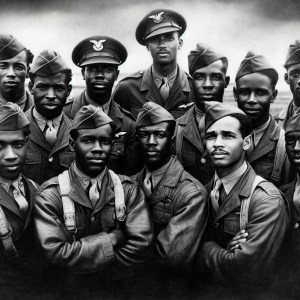
The Tuskegee Airmen: Breaking Barriers in the Sky
During World War II, the Tuskegee Airmen overcame racial discrimination to become the first African American military aviators in the U.S. Armed Forces. Trained in Alabama, these men fought with distinction, challenging racial barriers and paving the way for the eventual integration of the U.S. military. Their legacy is a powerful reminder of the contributions African Americans have made to the nation’s history, even in the face of adversity.
As we conclude this journey through the lives of these trailblazing figures, it’s essential to reflect on the impact they have had on our understanding of freedom, justice, and equality. How does the bravery of Harriet Tubman or the entrepreneurial spirit of Madam C.J. Walker resonate with you in today’s world? What lessons can we draw from the Tuskegee Airmen’s fight against racial barriers? These stories are more than historical accounts; they are powerful reminders of the human capacity to overcome adversity and effect change. Let their legacies inspire us to continue advocating for a world where equality and justice are not just ideals but realities for all.
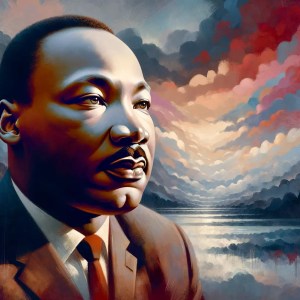
The Collective Impact on American History
As we reflect on the stories of Martin Luther King Jr., Ona Judge, Frederick Douglass, Harriet Tubman, Madam C.J. Walker, and the Tuskegee Airmen, it’s crucial to ask ourselves: How do these narratives intertwine to shape the tapestry of American history? These individuals, each a symbol of resilience and change, have collectively paved the way for progress in the ongoing fight for civil rights. But what does their legacy mean for us today? How can we carry forward the torch of equality and justice that they bravely held high?
The Interwoven Legacy of Heroes
Martin Luther King Jr.’s advocacy for nonviolent protest and his dream of racial equality drew upon the courage and determination of those who came before him. The stories of Ona Judge’s escape, Frederick Douglass’s eloquence, Harriet Tubman’s daring missions, Madam C.J. Walker’s entrepreneurial success, and the Tuskegee Airmen’s bravery in the face of segregation, all contribute to a richer understanding of the civil rights movement. Their struggles and triumphs remind us that the journey towards equality is a collective effort, one that requires persistence, courage, and solidarity.
Today’s Struggle, Tomorrow’s Hope
In today’s world, where the fight for racial justice and equality continues, these historical figures offer us valuable lessons. They remind us of the power of standing up against injustice, the importance of perseverance in the face of adversity, and the need for unity in pursuit of a common goal. As we honor their memories, we must also ask ourselves how we can contribute to building a society that aligns with King’s vision—a society where equality and justice are not just aspirations but lived realities.
In commemorating Martin Luther King Jr. Day, we do more than remember a great leader; we rekindle the spirit of all those who fought alongside him and before him for a better world. Their stories are not just relics of the past; they are enduring inspirations that guide us in our current struggles. As we look to the future, let their courage, wisdom, and unyielding commitment to justice empower us to continue the work they began. The question we leave you with is this: How will you contribute to the legacy of equality and justice that these great individuals have left us?
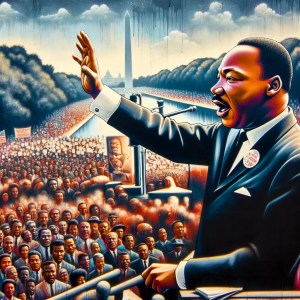
Continuing the Legacy in Modern Times
As we reflect on the monumental achievements of Dr. Martin Luther King Jr. and his contemporaries, it’s imperative to recognize the enduring relevance of their philosophies and actions in today’s world. The struggle for civil rights and equality, although evolved, continues in various forms and movements across the globe.
The Black Lives Matter movement, among other contemporary advocacy groups, echoes the call for racial equality that Dr. King championed. These modern movements draw inspiration from his principles of nonviolent protest, proving that peaceful demonstrations remain a powerful tool for social change. The sustained global impact of these protests highlights the timeless nature of Dr. King’s message and his enduring influence on civil rights activism.
Furthermore, the principles of nonviolent protest and civil disobedience, central to Dr. King’s approach, continue to influence peaceful demonstrations worldwide. From sit-ins and marches against racial injustice to the peaceful protests against police brutality and racial profiling, the legacy of nonviolent resistance remains a cornerstone in the fight for justice.
Today’s struggles against systemic inequalities, racial profiling, and police brutality are reminiscent of the battles fought during the civil rights era. These contemporary issues serve as a stark reminder that the journey towards equality and justice, embarked upon by Dr. King and others, is far from complete. Their lives and sacrifices stand as a powerful testament to the ongoing need for vigilance, activism, and a commitment to the ideals of equality and justice for all.
Conclusion: Carrying Forward the Legacy of Courage and Change
As we honor Martin Luther King Jr. and the pantheon of trailblazers who have shaped the landscape of civil rights in America, we are reminded of the enduring power of resilience, courage, and the unwavering pursuit of justice. Their stories, spanning from Ona Judge’s daring escape to Martin Luther King Jr.’s visionary leadership, are not just historical narratives; they are ongoing lessons in the power of standing up for what is right.
Today, as we continue to witness and engage in the struggle for equality and justice, these historical figures serve as guiding lights. Their lives challenge us to question, to act, and to dream of a world that upholds the dignity and rights of all its inhabitants. Their legacies are a call to action, urging us to be active participants in shaping a more equitable future.
A Path Forward
As we move forward, let us take inspiration from these stories and ask ourselves how we can contribute to the ongoing fight for civil rights. Whether through education, advocacy, or everyday acts of kindness and understanding, each of us has the power to make a difference. Let us embrace the spirit of Martin Luther King Jr. and his contemporaries, carrying their legacy into our communities and beyond.
In the spirit of learning and action, consider exploring more untold stories of African American history and their impact on the civil rights movement. Engaging with these narratives not only honors the past but also enriches our understanding and commitment to a more just and inclusive society.
In conclusion, Martin Luther King Jr. Day is more than a commemoration; it is a reminder of the ongoing journey toward equality and the role each of us can play in continuing this crucial work. Let their stories inspire us, their courage guide us, and their dreams challenge us to keep moving forward.
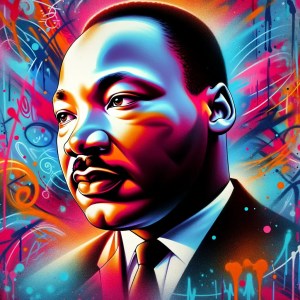
From Past to Present: Carrying Forward the Torch
As we draw our reflections to a close, it is crucial to acknowledge how the enduring legacy of Dr. Martin Luther King Jr. and other trailblazers of civil rights continues to illuminate our path forward. This legacy is not confined to the pages of history books; it thrives in the actions and initiatives that keep their spirit alive in our modern world.
Educational institutions and cultural organizations play a pivotal role in this ongoing commemoration. Through scholarships named in honor of these figures, educational programs centered on their teachings, and annual events that celebrate their achievements, new generations are continually introduced to their legacy. These initiatives not only preserve the memory of these leaders but also inspire young minds to follow in their footsteps.
Contemporary figures and organizations stand as testament to the lasting influence of these historical icons. Activists, leaders, and community organizers of today often cite Dr. King, Frederick Douglass, Harriet Tubman, Madam C.J. Walker, and others as their sources of inspiration. This lineage of activism and advocacy showcases a direct connection from the past struggles to the present endeavors in civil rights and social justice.
Moreover, the recognition of these civil rights leaders extends to our physical and communal spaces. The naming of buildings, streets, and public facilities after these individuals, along with the establishment of awards that carry their names, are more than symbolic gestures. They are affirmations of the values they championed and a testament to the lasting impact of their contributions to our society.
In embracing the legacies of these remarkable individuals, we do more than just honor their memory. We reignite their passion for justice and equality in our own lives, carrying forward the torch that they once held so high. This is our collective responsibility and privilege – to ensure that the flames of change and progress they ignited continue to burn brightly in our time and for future generations.
“Injustice anywhere is a threat to justice everywhere. We are caught in an inescapable network of mutuality, tied in a single garment of destiny. Whatever affects one directly, affects all indirectly.”
– From “Letter from Birmingham Jail,” 1963. Penned by Dr. Martin Luther King Jr.















